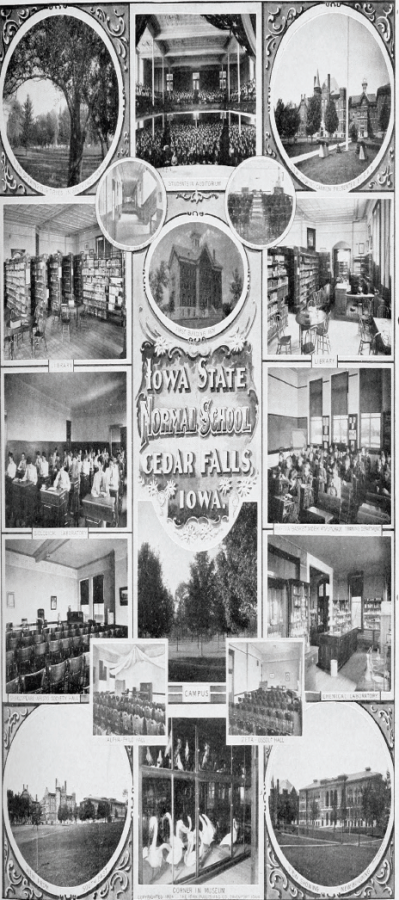New undergraduate enrollment grows in number and quality
Nov 7, 2022
Editor’s Note: This article was published Oct. 22, 1991 when enrollment at UNI started to increase.
Despite recent state budget cuts and another impending tuition increase, undergraduate enrollment at the University of Northern Iowa is not losing any ground.
According to figures released by the admissions office, new undergraduate enrollment for fall 1991 is second in size only to the record enrollment of fall 1990. More than 6,200 new applicants were received for undergraduate admission for the fall semester; 4,995 were cleared for admission and 3,206 actually enrolled.
New undergraduates represent 26.7 percent of the total number of undergraduates, and 16.9 percent of those enrolled directly after high school.
The percentage of Iowa high school seniors enrolling immediately after graduation was 5.6 percent for this semester, and the percentage has increased every year for the past five years.
Jack Wielenga, director of Admissions at UNI, said there is “a grater awareness of the uniqueness of the University of Northern Iowa as a state university on a regional and national basis. UNI is the school of choice for a greater number of people.”
Because competition is so high, academic quality of those admitted is strong.
“The University of Northern Iowa as a choice is being considered more often, and after being considered, more serious students choose UNI,” Wielenga said.
– Of new freshmen admitted for fall 1991, 73.6 percent obtained an ACT score of 21 or above.
– 93.1 percent of new freshmen ranked in the top half of their high school classes.
– 33.1 percent of those freshmen ranked in the top 30 percent of their high school class and earned a composite standard score of 24 or above on their ACTs.
– 141 new freshmen have received a total of 959 semester hours of college credit as of Sept. 1 through CLEP examinations.
– 65 new freshmen have received a total of 297 hours of college credit through Advanced Placement examinations.
– Students entering directly from high school fulfilling or exceeding the required high school coreis 92 percent.
– 94.3 percent of new students who graduated
from high school in 1991 completed two or more
years of a single foreign language, and 47.6 percent
completed three or more years.
– Only 3.3 percent of new freshmen are required to register for non-credit developmental courses in English and/or math.
– The vast majority of undergraduate students at UNI are from Iowa, although the number of non- resident students is greater for the current semester than in any previous fall term.
– 96.2 percent of new freshmen are classified as residents of lowa.
– 64 percent of new freshmen graduated from high schools with classes of 200 students or less, while only 2.7 percent graduated from classes of more than 400 students.
– More than two-thirds of new transfer students enter UNI from an lowa two-year college. More
students have transferred from North low Community College in Mason City for the past six yearsthan from any other single college. This fall, 170 students transfered to UNI from NIACC.
– Close to half of all new transfer students have earned an associate of arts degrec, meeting UNI’s general education
requirements.
“I think that the University of Northern Iowa is being considered by a larger percentage of students as a possibility,” Wielenga said. “In that large group, they are selecting UNI. The number of minority and foreign students at UNI is also
increasing.
– The number of new undergraduate minority students entering a fall term has increased for the fifth consecutive year, and 80 percent of those undergraduates who were admitted ended up enrolling.
– 29 new undergraduate students representing 11 countries from around the world entered UNI in the fall of 1991.
Wielenga said that there are many factors for the enrollment increases, but he said the satisfaction of current students may be the biggest factor.
“I’m convinced that there just isn’t a better recruiter than a happy student,” he said.








